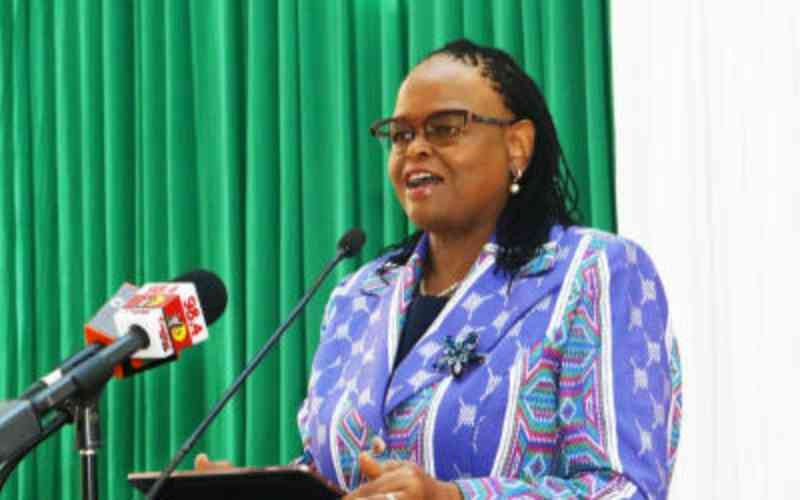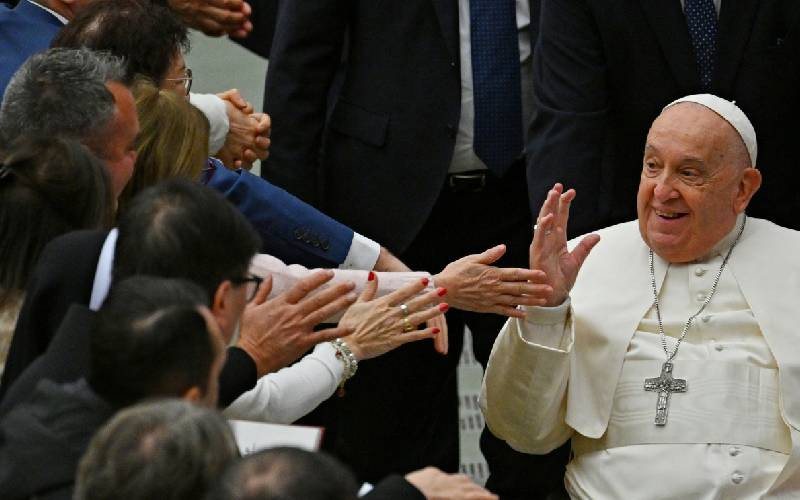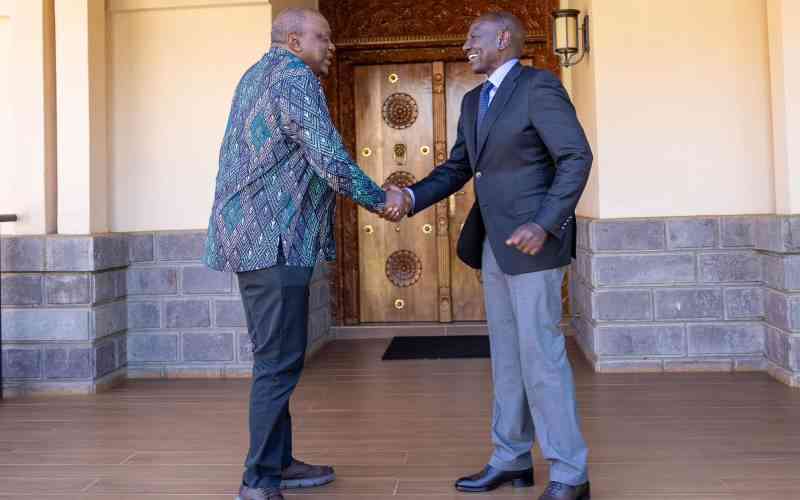A new beginning. That is what President Uhuru Kenyatta promised Kenyans on February 3, 2013 when he launched the Jubilee Alliance’s blueprint for the country for the five years that would follow.
Last week marked the second year since President Kenyatta was elected into power. It is an occasion that the president and his men must be marking with some measure of satisfaction.
Last week, the World Bank released a report that projected the economy to grow by a robust seven per cent this year, up from 4.7 per cent last year. The latest figure falls within the seven to 10 per cent range that Jubilee promised to grow the economy over its five-year term. In the larger scheme of things, Jubilee is on the mark.
Yet despite these projections, many Kenyans, as a number of recent local surveys have indicated, are not happy with the direction of the economy. When launching the manifesto, the President said: “Unlike others, our manifesto is not a dormant and lifeless write-up destined for safe storage away from wananchi’s scrutiny.” In the spirit of scrutiny, how far is Jubilee in implementing its own pledges to Kenyans especially in the key areas of the economy? Insecurity has been one of the Government’s main weaknesses. Some of the most devastating terror attacks by Somalia’s Al-Shabaab militants have taken place during President Kenyatta’s two years in office.
The Security Laws (Amendment) Act 2014 that was passed acrimoniously last December contains aspects of handling terrorism matters that Jubilee had promised to address in its manifesto. However, George Musamali, a Horn of Africa security analyst says: “The Act is very much anti-people and targeted at the media.”
Status quo remains
Although the Government has signed with a Sh15 billion security surveillance project with Safaricom for Nairobi and Mombasa, it is yet to become operational. Apart from the resignation of the Head of National Intelligence Service (NIS), Maj Gen Michael Gichangi, the much anticipated shake up of NIS is yet to be seen.
“The status quo remains in NIS. Nothing has changed at all apart from the head and that is why we are still having all these security challenges,” said Mr Musamali. Jubilee’s pledge to hire 15,000 officers per year might not be realised after the recruitment of new officers was cancelled due to high levels of corruption in the exercise.
However, it has delivered on its pledge to provide medical and life insurance covers for police officers and prison wardens, numbering 107,000 in total. The tourism sector was hit hardest by the insecurity after western countries issued travel advisories to their citizens against visiting Kenya. The Government’s plan to promote local tourism by pledging a 12 per cent tax rebate for private firms that cater for vacation expenses of their employees, though noble, has not taken off due to poor planning.
When launching the manifesto, President Kenyatta singled sorting out the intractable land mess in the country as one of his key priorities during his term.
To his credit, the Lands Ministry has embarked on computerisation and digitisation of the land registry and management as promised. At the beginning of his term, the President issued hundreds of thousands of title deeds to squatters in the coastal counties and more recently Lands Cabinet Secretary Charity Ngilu issued some more in Meru.
However, Jubilee’s pledge to repossess illegally acquired public lands without compensation and prosecute land grabbers, especially Government officials, has not been convincing at best.
In order to eliminate ethnic divisions and promote national cohesion, the Jubilee Government promised to resettle all internally displaced persons. However, while virtually all of the 2007/2008 post-election violence IDPs were settled during President Mwai Kibaki’s time, the Mau Forest evictees continue to languish in their tents four years later. On addressing youth unemployment, the promise of establishing institutes of technology in every ward to empower youth with skills is yet to be realised.
Last month, President Kenyatta made good his promise to expand the mandate of the African Court of Justice when he made a one million dollar pledge for the establishment of the African Court of Justice and Human Rights. The court is meant to be Africa’s answer to the International Criminal Court, which his government has lampooned severally as an instrument of neo-colonialism. He has lived up to his word to help stabilise Somalia, promising that Kenya will not pull out its troops even in the face of increased attacks by the Al-Shabaab on Kenyan soil. In education, his pledge to provide solar-powered laptops to school pupils within the first 100 days of his presidency has become a mirage following a bungled tendering process. Critics have labelled the project frivolous and unnecessary and called for the money to be channeled to other more deserving education sectors. They point to the fact that the Government is yet to fulfill its pledge of increasing the number of schools in disadvantaged areas and restrict the number of students per class to 40. Although it promised to increase the teacher to student ratio to 1:40, the Government has frozen the hiring of new teachers, citing poor economic performance. Little has been heard of a promise to provide free milk for primary school children to be sourced from local county based dairy milk farms.
The Government is yet to come through on its pledge to create a Kenya Development Bank to provide finances to the private sector to spur manufacturing. While the expansion of the Jomo Kenyatta International Airport is on course, little has been heard of the plans to build a new international airport in Isiolo. The promise to modernise the outdated ferry services and expand Mombasa, Eldoret and Kisumu airports, are yet to be actualised.
Stay informed. Subscribe to our newsletter
Its pledge to introduce affordable State loans to subsidise fertiliser and farm machinery for farmers is yet to be realised. Its pledge to initiate and implement the private-public insurance scheme for livestock and crop farmers within two years is yet to take off. Its plan to create Agricultural Investment Trusts through tax incentives to direct private investment in to agriculture is also still on ice. Its pledge to guarantee that every family has a fully equipped health centre within five miles of their home still remains pretty much an ideal in paper in greater parts of the country.
Defeatist approach
In line with its manifesto, the Government has tried to expedite the East African integration, but sometimes to the discomfort of other countries, especially Tanzania. Perhaps Jubilee’s worst performance is in the area of arts, sports and culture where it has delivered almost next to nothing. Although it promised to encourage and facilitate the better management of sports, it is under this regime that key sports organisations are almost going under.
The football, rugby and athletics federations are mired in self-defeating wrangles. The Government seems to have taken a defeatist approach to solving the matters. Its pledge to build five new national sports stadiums in Kisumu, Garissa, Mombasa, Nakuru and Eldoret and upgrade existing facilities in counties to accommodate tennis, rugby swimming and basketball remain largely a pipe dream.
 The Standard Group Plc is a
multi-media organization with investments in media platforms spanning newspaper
print operations, television, radio broadcasting, digital and online services. The
Standard Group is recognized as a leading multi-media house in Kenya with a key
influence in matters of national and international interest.
The Standard Group Plc is a
multi-media organization with investments in media platforms spanning newspaper
print operations, television, radio broadcasting, digital and online services. The
Standard Group is recognized as a leading multi-media house in Kenya with a key
influence in matters of national and international interest.
 The Standard Group Plc is a
multi-media organization with investments in media platforms spanning newspaper
print operations, television, radio broadcasting, digital and online services. The
Standard Group is recognized as a leading multi-media house in Kenya with a key
influence in matters of national and international interest.
The Standard Group Plc is a
multi-media organization with investments in media platforms spanning newspaper
print operations, television, radio broadcasting, digital and online services. The
Standard Group is recognized as a leading multi-media house in Kenya with a key
influence in matters of national and international interest.







